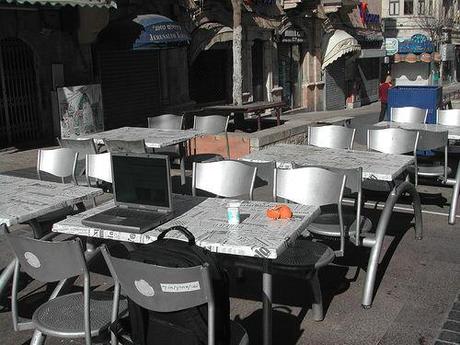
Free Wi-Fi hot spots have become the norm for many public places. Whether you’re waiting for your flight to board at the airport, sipping a latte at your favorite coffee shop or winding down for the night in a motel, you expect the convenience of easy internet access. But free Wi-Fi can end up costing you big time if your connection isn’t secure. Here are some ways to make sure your personal information isn’t stolen when you log on in public spaces.
Beware of unencrypted Wi-Fi hot spots
You can find free Wi-Fi just about anywhere these days. Some require a password to use and others are simply free access. Regardless of whether you have to log on to use it, what you do on public Wi-Fi networks can easily be tracked by hackers. Most public passwords are only in place to keep non-customers from accessing Wi-Fi rather than securing the connection. When you’re using a public Wi-Fi connection, try to stick to simple things such as browsing sites and not logging into your email, checking your bank account or doing online shopping. Any personal information or passwords can easily be stolen over an unencrypted connection.
Types of encryption
If the Wi-Fi password you are asked to enter is a WPA password, however, then the connection is encrypted. WPA networks are designed to protect your information from hacking programs that are commonly used. WPA2 is even more secure than standard WPA protection.
TIP: It’s a good idea to avoid WEP encrypted wireless altogether as it’s incredibly easy to hack into.
Look for HTTPS for secure browsing
If the site you’re on begins with “HTTP:,” then it may not be secure. Anytime you are entering any sort of personal information on any site, make sure you see an “HTTPS:” at the beginning of the address bar. Many sites such as Google and Facebook default to HTTPS on most settings, but always make sure to double check. Keep in mind that the effectiveness of the security depends on each individual site and how it has been implemented.
Use a Virtual Private Network
Virtual Private Networks, or VPNs, allow you to secure your information even when working on an unencrypted connection. VPNs basically act as an encryption gate that your information passes through between your computer and the internet. There are various Virtual Private Network service providers where you can set up an account. Some free options include CyberGhost VPN Free, Proxify and Hotspot Shield.
Make sure your Firewall is enabled
Your operating system most likely has some sort of firewall, but it won’t do you any good if it isn’t enabled. If you’re using Windows, go to “Control Panel” then “Systems and Security” followed by the “Windows Firewall” panel. On Mac, go to “System Preferences” then “Security” and then “Firewall.”
Turn off file sharing
You may share files at home between multiple computers, but in public you need to make sure this feature is turned off. If it isn’t, pretty much anyone can access your files. Type “Network and Sharing Center” in the Start menu search box on Windows followed by “Choose Home Group and Sharing Options.” Here you can select “turn off sharing.” On Mac, go to “System Preferences” and select “Sharing.”
Always manually log off
If you do log onto any sites that require you to give one of your passwords, make sure to completely log off when you leave them. Many times your email or Facebook will keep you logged in even after you have gone to a new site. It’s also important to have a different password for every site so if one gets stolen, the hacker can’t get into all of your accounts.
Turning off your Wi-Fi connection
Make sure you disconnect from the network when you’re done using the Wi-Fi. On Mac, click on the Wi-Fi icon at the top of the screen and choose “Turn AirPort Off.” For Windows, go to the task bar and right click on the wireless icon to disconnect. If you don’t do this, your information could be compromised even after you stop using your computer. You also want to make sure that your laptop is set to only access Wi-Fi if you have manually selected a network.
Do you have any tips for safely using public Wi-Fi?
Norman Fong is Co-Founder of BuyVia, an online and iOS App smart shopping service that lists reputable products from top online stores, at the best price available. By downloading the BuyVia iOS App to their iPhone or iPad, consumers can be alerted to the best deals on the most popular products, anywhere and anytime.

